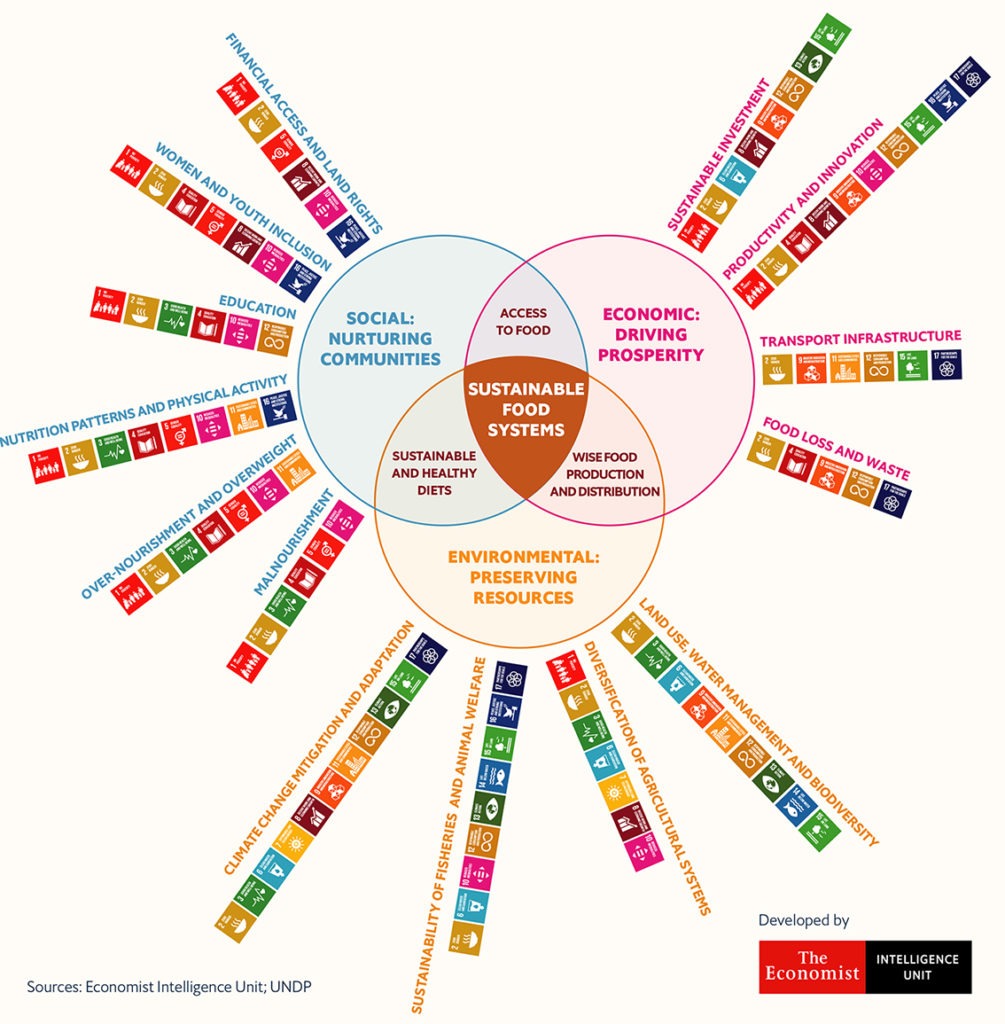Global report: food sustainability index
G20 countries must lead by example ahead of the UN Food Systems Summit this September by reducing food waste and improving diets and agriculture, according to the authors of the Food Sustainability Index (FSI). The FSI is a global study on nutrition, sustainable agriculture and food waste. It collects data from 67 countries to highlight best practices and key areas for improvement in relation to the food paradoxes. These include obesity and famine, allocation of natural resources to feed humans and livestock and malnutrition and food waste. It also focuses on the main UN Sustainable Development Goals.
The FSI, developed by The Economist Intelligence Unit (EIU) with the Barilla Center for Food and Nutrition (BCFN), found “room for improvement” across most nations. Only Canada and Japan scored in the top quartile for all three pillars.

A chance and a responsibility
Australia was still a good performer. We scored well on food loss and policy response to food loss. We also did well in water management, trade and biodiversity. However, we scored very poorly on the sustainability of our fisheries, agricultural diversification, population diet and the number of fast food restaurants, as well as end-user food waste.
France, Italy and the UK also performed well. But the US was among the worst performers for excessive meat consumption and land conversion for agriculture. Indonesia and Saudi Arabia were the worst-performing countries across all metrics.
“G20 members generate 80 percent of the world’s economic output and 75 percent of global greenhouse gas emissions,” says Martin Koehring, Regional Lead for Sustainability, Climate Change and Natural Resources at the EIU. “This gives these countries both the opportunity and responsibility to lead the way on food sustainability.”

Reaching global goals
The FSI revealed progress on reducing the 931 million tonnes of food wasted globally every year. However, none of the countries had published plans to account for losses or monitor reduction strategies. The authors also highlighted diets in the US. The average American consumer eats almost 250g more meat per day than recommended.
The report cited evidence that compliance with governments’ dietary guidelines would reduce premature deaths by 15 percent. It would also cut emissions by 13 percent. It highlighted the UK’s “Five a Day” campaign. This encourages five serves of fruit and veg a day and can increase consumption of fruits and vegies by 10 percent.
According to the FSI, all G20 countries had dietary guidelines. However, only four included sustainability as a metric of a healthy diet. Although 13 countries had stringent new climate action targets, only Indonesia and Canada included the agricultural sector in their plans.
“Leadership from the G20 can drive the transformational change needed across food systems to deliver all of our global goals” says Dr Marta Antonelli, head of research at BCFN. “Everything from reducing hunger and poverty to tackling climate change.”









